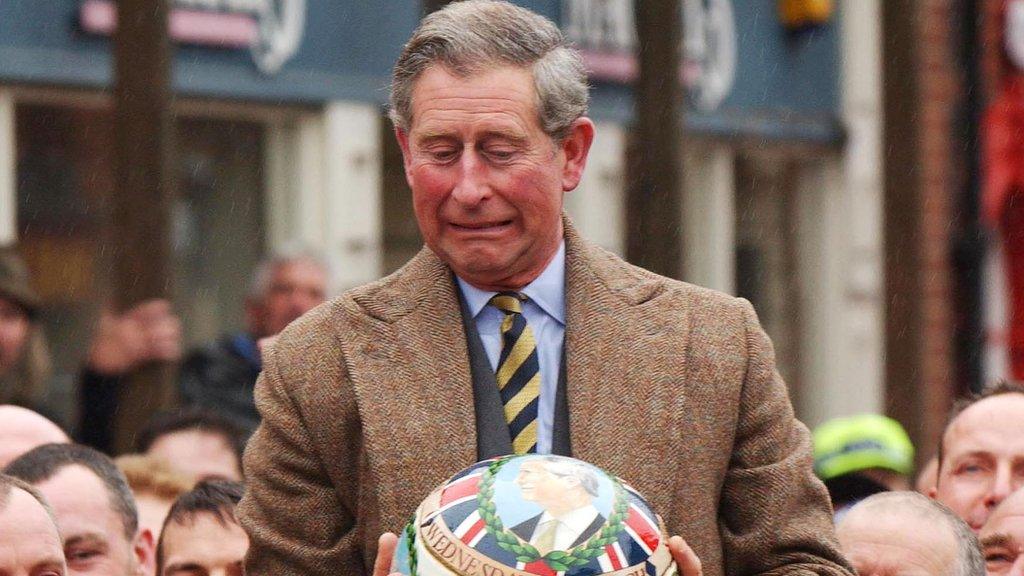Thousands gather as ancient Royal Shrovetide Football match begins
- Published
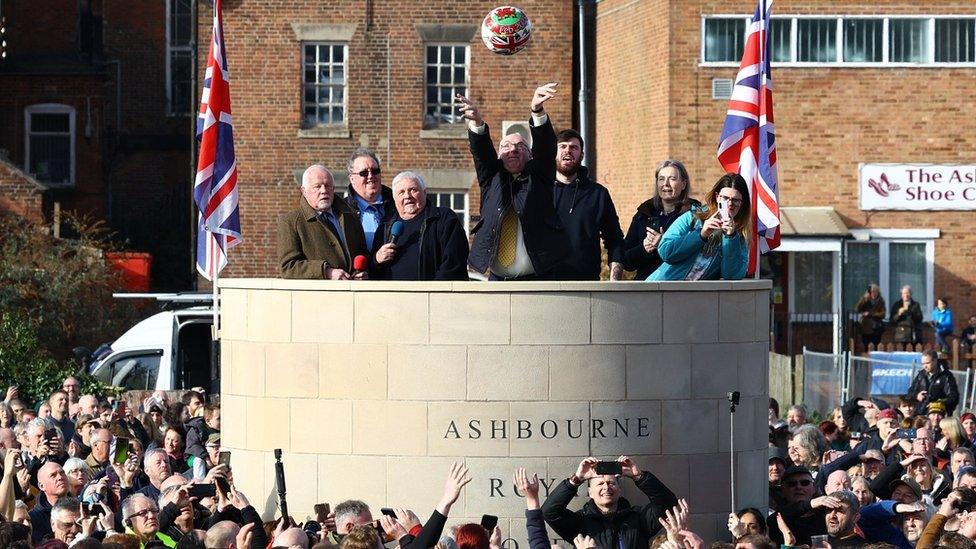
The match began from a newly-built plinth in the town of Ashbourne
A historic two-day football game involving thousands of players competing to move a ball to opposite ends of a Derbyshire town has begun.
The Royal Shrovetide Football match in Ashbourne - traditionally played on Shrove Tuesday and Ash Wednesday - has been held nearly every year since at least 1667.
The game, which dates back to the 12th Century, returned last year after being cancelled due to Covid.
The first day of play began earlier.
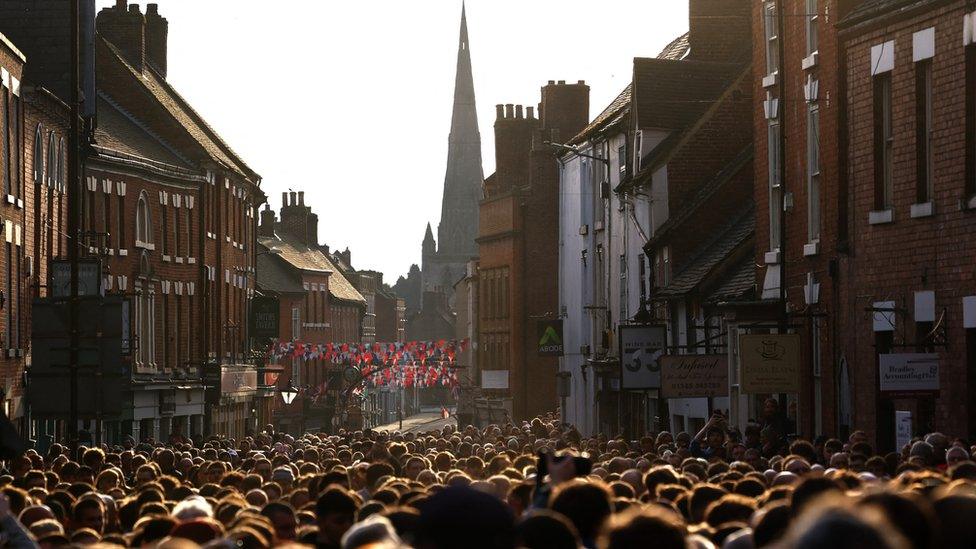
Spectators gather every year in the Derbyshire town for the traditional match
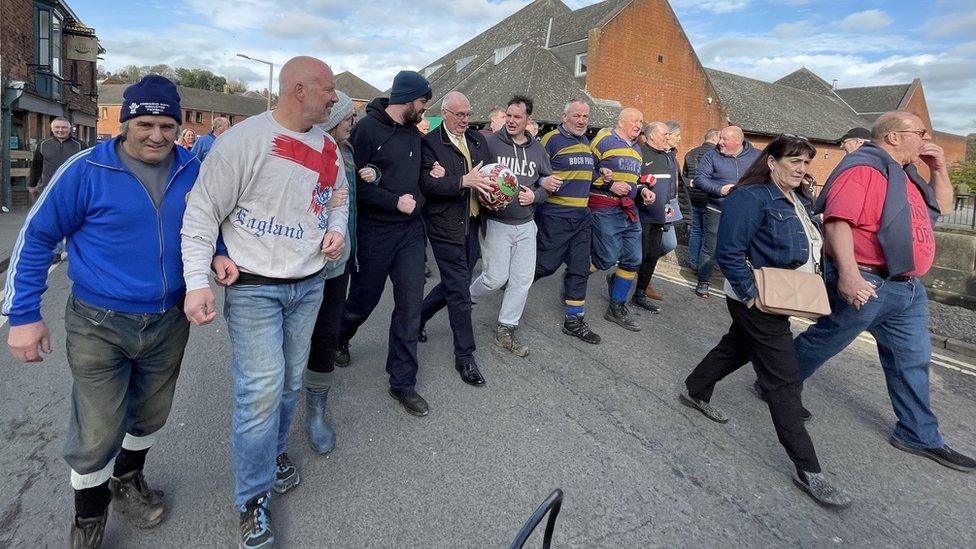
Players escort Paul Cook (centre), who had the honour to "turn up" the ball to start the game
Paul Cook - who had successfully lobbied for the cancellation of the event in 2001 - was given the honour of "turning up" the ball, an act that marks the start of the game.
Mr Cook - a National Farmers' Union agent - intervened due to a national outbreak of foot-and-mouth disease.
King Charles III, who was Prince of Wales at the time, had been asked to start the 2001 event but returned in 2003 following the cancellation.
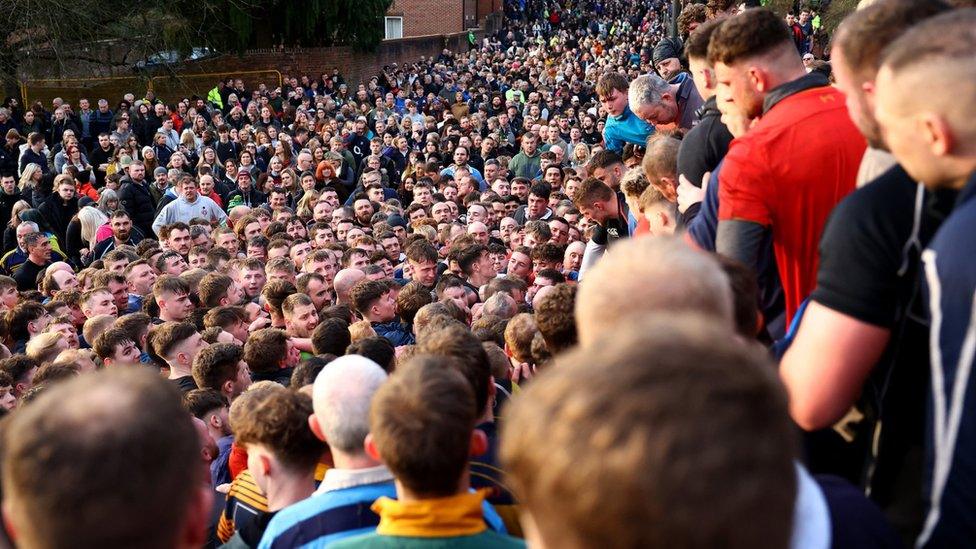
Crowds gather in a bid to see the action unfold
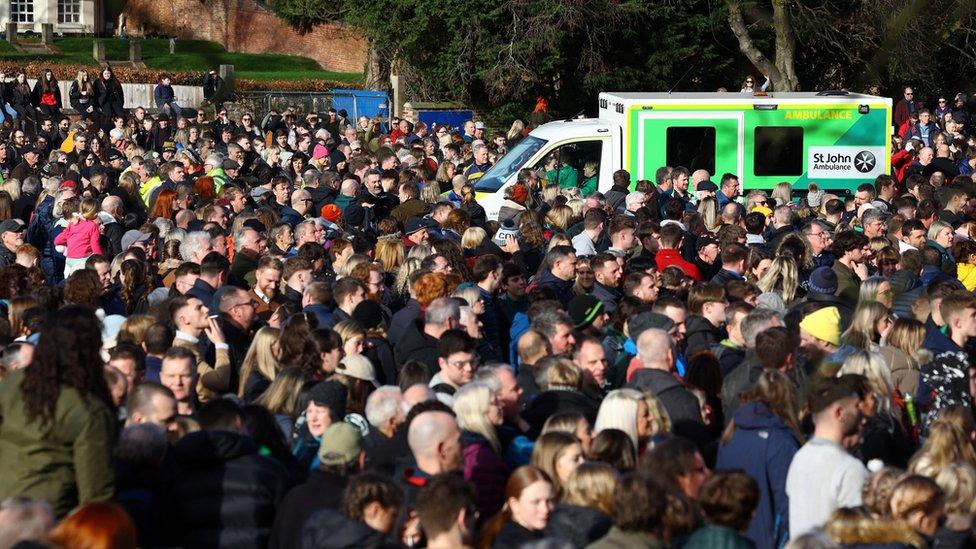
The game sees players from two sides - the Up'Ards and Down'Ards - competing to move the ball.
It is most of the most famous examples of Shrovetide football.
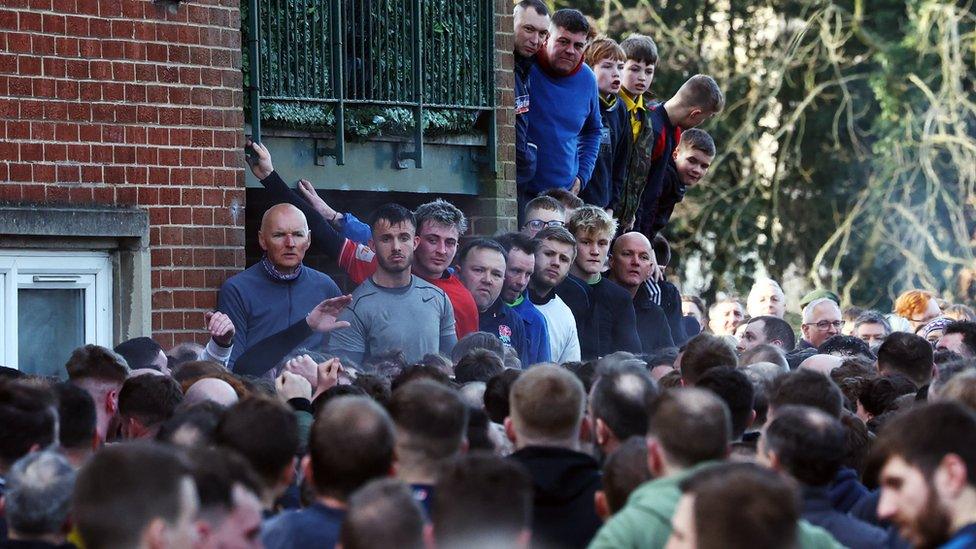
Nearby buildings are sometimes used to get a better view
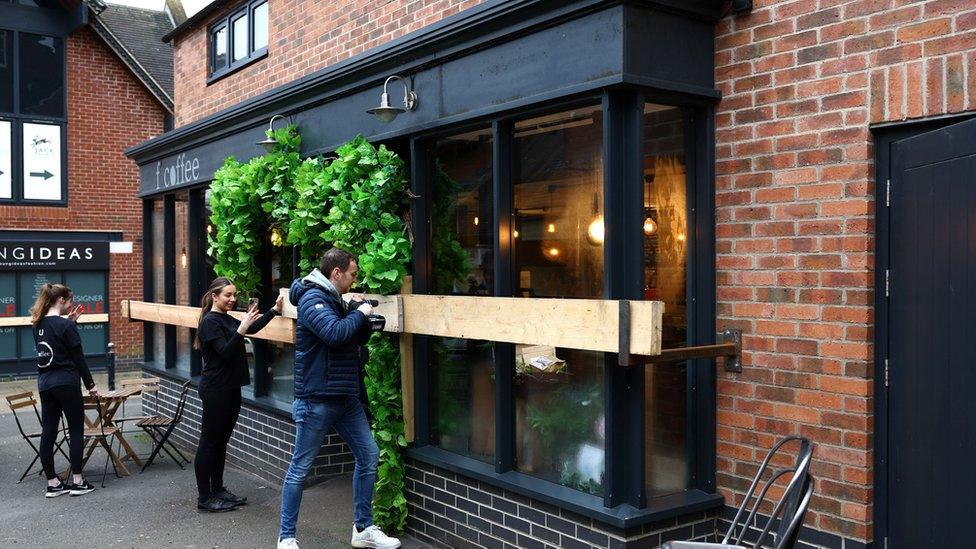
Some shops in Ashbourne board up their shop fronts as the action can get rough
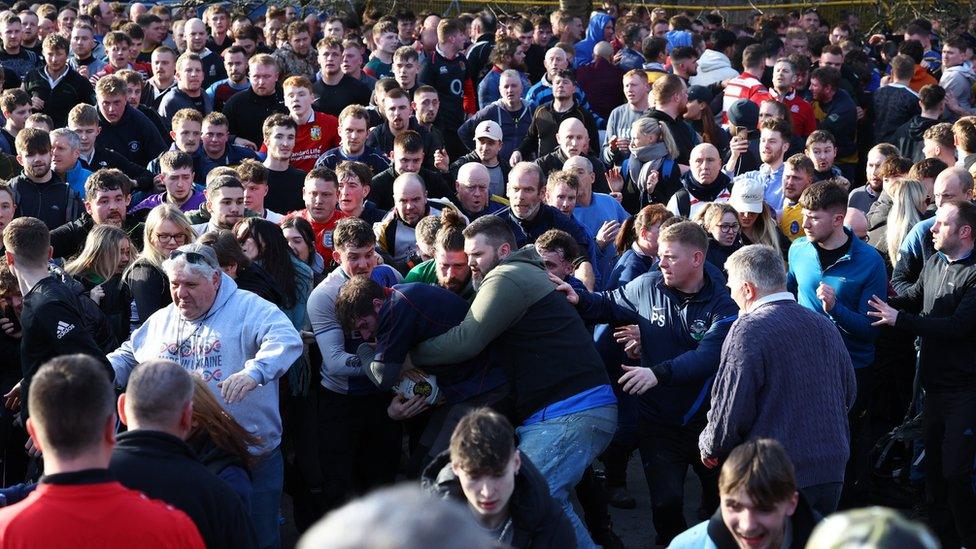
Up'Ards and Down'Ards keenly contest for the ball

Follow BBC East Midlands on Facebook, external, on Twitter, external, or on Instagram, external. Send your story ideas to eastmidsnews@bbc.co.uk, external.
Related topics
- Published21 February 2023
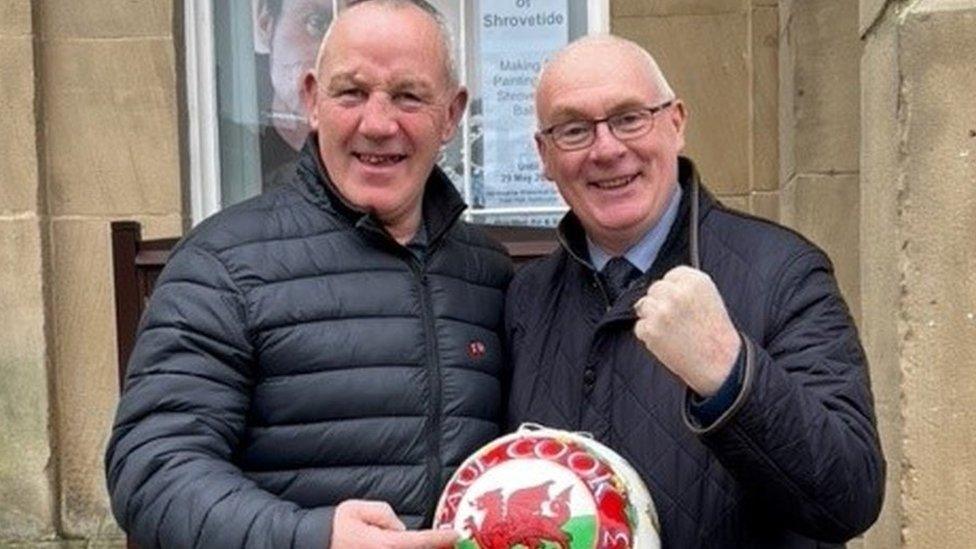
- Published28 September 2022
